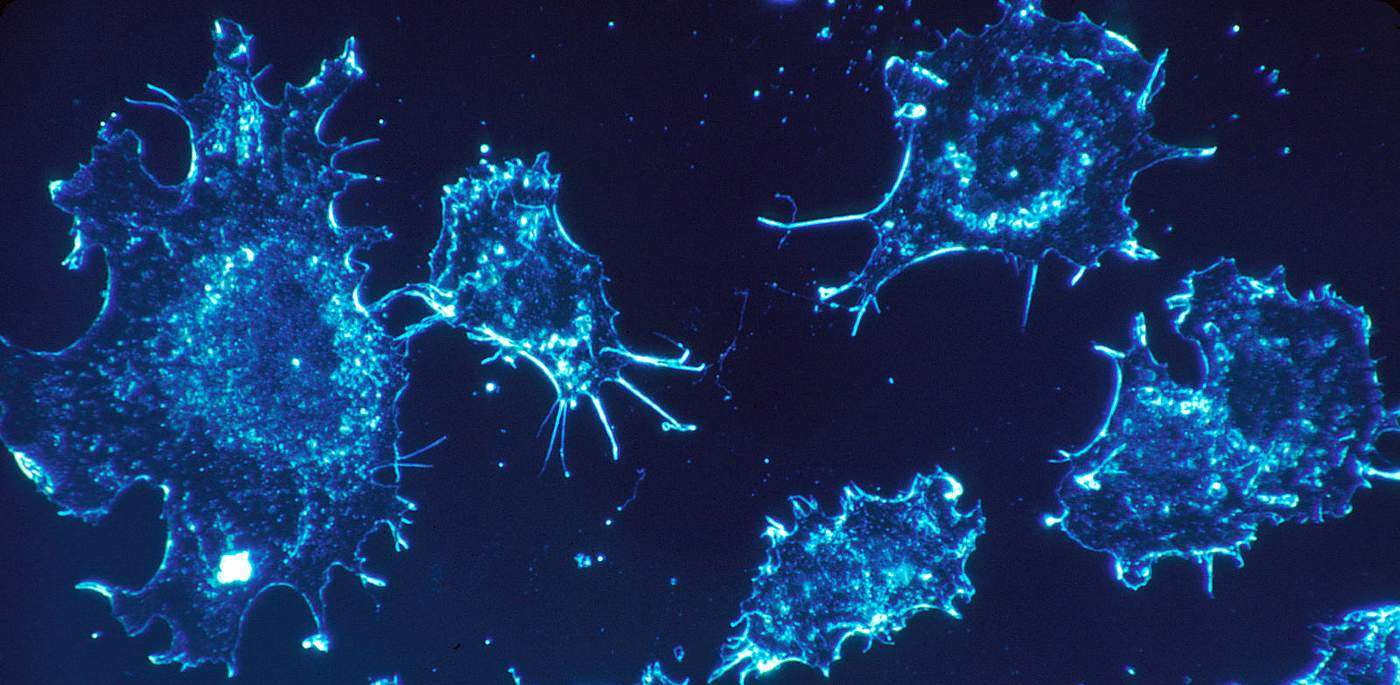Colorado Proposes Giving Free Therapy to Young People Struggling in Pandemic
The therapy program under House Bill 21-1258 allows up to three free mental health sessions to every Coloradan under 19.

A landmark human trial testing a vaccine that's designed to help the immune system target brain tumors has shown promising results-and Phase 2 of the trial is now being planned.
According to a Nature article published by the researchers leading the trial, the vaccine was safe for all patients, and showed the hoped-for immune response to cancerous tissue.
Diffuse gliomas are usually incurable brain tumors that spread in the brain and are difficult to remove completely by surgery. Chemotherapy and radiotherapy often only have a limited effect too.
In many cases, diffuse gliomas share a common feature: in more than 70 percent of patients, the tumor cells have the same gene mutation. An identical error in the DNA causes a single, specific protein building block to be exchanged in the IDH1 enzyme. This creates a novel protein structure, known as a neo-epitope, which can be recognized as foreign by the patient's immune system.
"Our idea was to support patients' immune system and to use a vaccine as a targeted way of alerting it to the tumor-specific neo-epitope," explained study director Michael Platten, Medical Director of the Department of Neurology of University Medicine Mannheim and Head of Division at the German Cancer Research Center (DKFZ).
The IDH1 mutation is a particularly suitable candidate here, as it is highly specific to the gliomas and does not occur in healthy tissue. Moreover, the IDH1 mutation is responsible for the development of these gliomas: "That means that a vaccine against the mutated protein allows us to tackle the problem at the root," Platten added.
Platten's team had already generated an artificial version of the segment of the IDH1 protein with the characteristic mutation several years ago. This mutation-specific peptide vaccine was able to halt the growth of IDH1-mutated cancer cells in mice. In 2019, Platten was awarded the German Cancer Prize for this discovery.
Encouraged by these results, Platten and a team of physicians decided to test the mutation-specific vaccine for the first time in a phase I study in patients newly diagnosed with a IDH1-mutated glioma.
A total of 33 patients at several different centers in Germany were enrolled in the study. In addition to the standard treatment, they received the peptide vaccine produced by Heidelberg University Hospital and University of Tí¼bingen. The immune response was able to be evaluated in 30 patients, according to the study published in Nature.
The physicians did not observe any serious side effects in any of the patients who were vaccinated. In 93 percent of the patients, the immune system showed a specific response to the vaccine peptide and did so regardless of the patient's genetic background, which determines the immune system's important presentation molecules, the HLA proteins.
In a large proportion of the vaccinated patients, the physicians observed "pseudoprogression", swelling of the tumor caused by a host of invading immune cells.
These patients had a particularly large number of T helper cells in their blood with immune receptors that responded specifically to the vaccine peptide, as single cell sequencing revealed.
"We were also able to demonstrate that the activated mutation-specific immune cells had invaded the brain tumor tissue," reported Theresa Bunse from DKFZ, who coordinated the immunological analyses for these studies.
The three-year survival rate after treatment was 84 percent in the fully vaccinated patients, and in 63 percent of patients tumor growth had not progressed within this period. Among the patients whose immune system showed a specific response to the vaccines, a total of 82 percent had no tumor progression within the three-year period.
"We cannot draw any further conclusions about the vaccine efficacy from this early study without a control group," remarked Michael Platten. "The safety and immunogenicity of the vaccine were so convincing that we continued to pursue the vaccine concept in a further phase I study."
In this follow-on study, the researchers are combining the IDH1 vaccine with checkpoint inhibitor immunotherapy. "Checkpoint inhibitors act as an immune boost. We believe there is a good chance that they can activate the immune cells against the gliomas to an even greater extent."
The researchers are also preparing a phase II study to examine for the first time whether the IDH1 vaccine leads to better treatment results than the standard treatment alone. "Gliomas are diagnosed in around 5,000 people in Germany every year, of which about 1,200 are diffuse gliomas with an IDH1 mutation. Up to now, we have usually had only limited success in halting tumor progression in these patients. We believe that the IDH1 vaccine offers the potential for developing a treatment that can suppress these tumors more effectively and on a long-term basis," commented study co-director Wolfgang Wick, Medical Director of the Neurological Clinic of Heidelberg University Hospital and Head of Division at DKFZ.
That's promising news indeed, and we'll be sure to keep you updated about further developments stemming from these trials.
Source: German Cancer Research Center, University Medicine Mannheim, Heidelberg University Hospital, and the National Center for Tumor Diseases (NCT) Heidelberg
SHARE This Promising Research With Friends on Social Media…
Be the first to comment